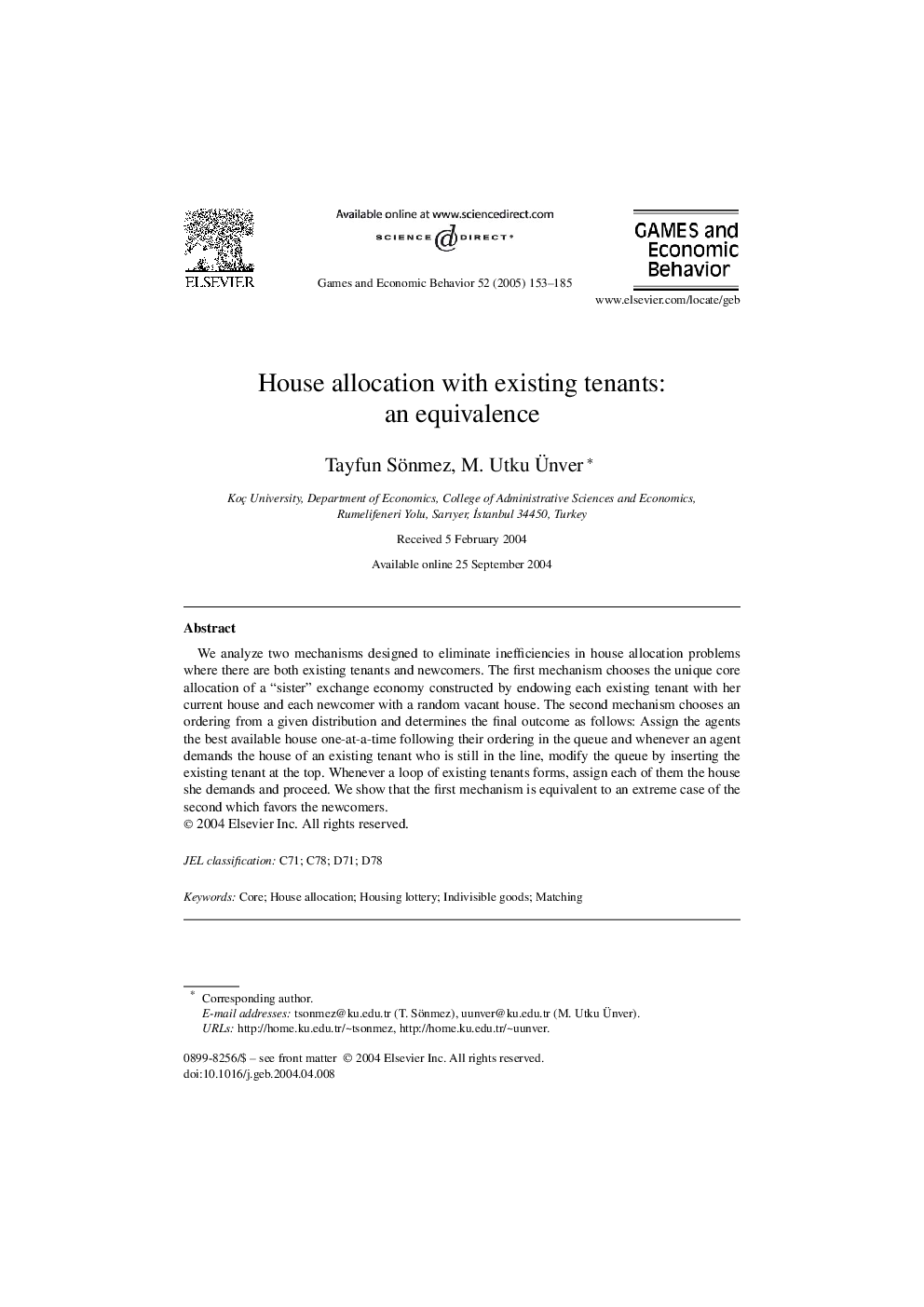| Article ID | Journal | Published Year | Pages | File Type |
|---|---|---|---|---|
| 9551732 | Games and Economic Behavior | 2005 | 33 Pages |
Abstract
We analyze two mechanisms designed to eliminate inefficiencies in house allocation problems where there are both existing tenants and newcomers. The first mechanism chooses the unique core allocation of a “sister” exchange economy constructed by endowing each existing tenant with her current house and each newcomer with a random vacant house. The second mechanism chooses an ordering from a given distribution and determines the final outcome as follows: Assign the agents the best available house one-at-a-time following their ordering in the queue and whenever an agent demands the house of an existing tenant who is still in the line, modify the queue by inserting the existing tenant at the top. Whenever a loop of existing tenants forms, assign each of them the house she demands and proceed. We show that the first mechanism is equivalent to an extreme case of the second which favors the newcomers.
Related Topics
Social Sciences and Humanities
Economics, Econometrics and Finance
Economics and Econometrics
Authors
Tayfun Sönmez, M. Utku Ãnver,
